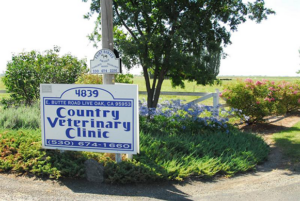When a dog is over eight years old, it is a senior dog. Senior dogs have grown fully, their bodies beginning to give in to aging. Aging affects the organs in the dog’s body. Some organs are more susceptible to damage than others.
Other organs wear out faster than others. Because of this susceptibility and wear and tear of the organs, a vet should observe a senior dog frequently. Senior dogs without prior conditions should see the vet once every six months.
What Happens In A Checkup?
A senior dog should be ready for the vet. This is so that the vet can give a complete checkup. Some of the assessments that the vet will do are:
- A review of your dog’s history, activity level, and diet
- Vital sign checkup
- A test for parasites
- Full body examination
- Weight monitoring
- Inspection of ears, mouth, and eyes
- Booster and vaccination administration
- Legs and joints manipulation
- Review of maintenance medication and anti-parasitic drugs
What Goes On In A Geriatric Screening?
Along with a checkup, senior dogs also go through geriatric screening. It is a more in-depth checkup. It can help with the early diagnosis of progressive diseases. Early detection of these diseases will help in their management and prolong their life span.
Geriatric screening includes:
- Blood chemistry screening and blood cell count
- Analysis of urine samples for infections, kidney issues, and diabetes
- Fecal floatation to test for parasites
- Testing for heartworms
- Checking for tick-caused diseases like Lyme disease
- Observation due to genetic disposition
What Common Health Conditions Affect Senior Dogs?
Usually, senior dogs develop some complications due to their age. All you can do for your dog is keep them well-fed and maintained. They experience a slow decline in their health because of the wear and tear on their organs. Here are some of the common health conditions your dog is likely to experience
Kidney Disease
This occurs when the body no longer filters the blood for impurities and toxins as well as it used to. Sometimes, genetics can play a crucial role in developing kidney disease. It also affects dogs with no family history of the same. Other underlying issues like infections, obstructions, toxins, and cancer can cause kidney disease to develop.
Arthritis
This disease causes degeneration of joints, making it difficult to walk. It can be a severe condition to have. In dogs, rheumatoid arthritis can be hereditary. However, aging in dogs also causes arthritis. It is a symptom of wear and tear on the joints. It can cause joint swelling, decreased activity, and aggression.
Loss Of Hearing
This occurs when the vestibulocochlear nerve in the inner ear degenerates. It usually happens gradually, only becoming noticeable when it is late. There is, unfortunately, no cure or remedy for age-related hearing loss in dogs. You will see that your dog no longer responds when you call.
For more on taking your senior dog to the vet, visit County Veterinary Clinic at our office in Live Oak, California. You can also call (530) 491-4500 to book an appointment today.



